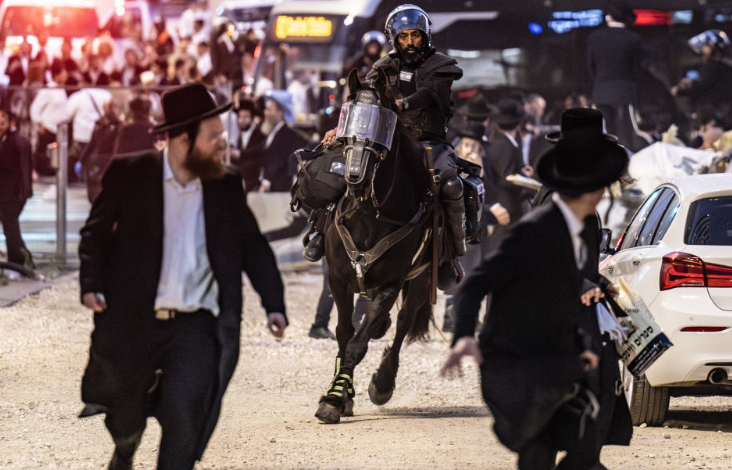Israeli Supreme Court Rules Ultra-Orthodox Must Serve in the Military

In a landmark decision, the Israeli Supreme Court has ruled that ultra-Orthodox Jews, traditionally exempt from mandatory military service, must now serve in the Israel Defense Forces (IDF). This ruling addresses long-standing debates over military exemptions for the ultra-Orthodox community, known as Haredim, who have typically been allowed to pursue religious studies instead of serving in the military.
Historical Exemptions
Historically, Haredi men have been granted exemptions from military service, a practice rooted in the early years of Israel’s statehood. Initially, the exemptions applied to a small number of religious scholars, but over time, the number of exempted individuals grew significantly. As of recent years, tens of thousands of Haredi men have avoided conscription, sparking debates about equality and national duty.
Supreme Court’s Decision
The Israeli Supreme Court’s decision overturns previous laws that allowed for these exemptions. The court ruled that these exemptions are unconstitutional as they violate the principle of equality by placing an unequal burden on the rest of the population, who are required to serve.
Implications for the Haredi Community
This ruling has profound implications for the ultra-Orthodox community:
- Integration Challenges: The decision may face resistance from the Haredi community, which values religious study and often lives in insular communities with limited interaction with secular Israeli society.
- Social and Economic Impact: Integrating Haredi men into the IDF could also impact their social and economic participation in broader Israeli society, potentially leading to increased employment and educational opportunities.
- Religious and Political Tensions: The ruling is likely to intensify religious and political tensions within Israel, as many ultra-Orthodox leaders and politicians vehemently oppose mandatory conscription.
Reactions and Responses
- Supporters of the Ruling: Many secular and mainstream Israelis support the decision, viewing it as a necessary step towards equality and shared responsibility. They argue that it is unfair for the burden of national defense to fall disproportionately on non-Haredi citizens.
- Opponents of the Ruling: The Haredi community and its political representatives have expressed strong opposition. They argue that forcing religious scholars to serve in the military infringes on their religious freedoms and disrupts their way of life.
Government and Military Adaptations
The Israeli government and the IDF will need to develop strategies to accommodate the influx of Haredi soldiers. This includes potentially creating specialized units and programs that respect their religious practices and dietary laws, as well as addressing educational and cultural differences.
Broader Societal Impact
The ruling may have broader societal implications, potentially leading to increased integration of the Haredi community into Israeli society. This could foster greater social cohesion but also risks heightening divisions if not managed carefully.
Future Legal and Political Developments
This decision is likely to lead to further legal and political battles. Haredi political parties, which hold significant influence in the Knesset (Israeli parliament), may seek to pass new legislation to counteract the court’s ruling or find alternative solutions that balance religious freedoms with national service requirements.
Looking Ahead
The Israeli Supreme Court’s decision marks a pivotal moment in the country’s ongoing struggle to balance religious traditions with modern state responsibilities. How Israel navigates this challenge will be crucial in shaping its social fabric and national identity in the coming years.





